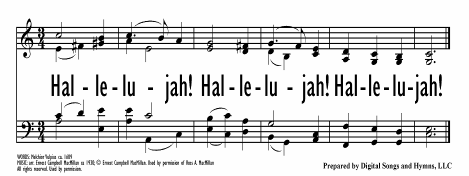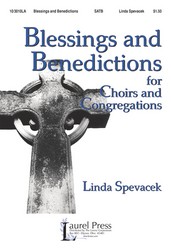- |
User Links
Alleluia, Alleluia
Hymn Information
- First Line
- Alleluia, alleluia, alleluia, alleluia
- Text Source
- Traditional
- Tune Name
- SINCLAIR
- Composer
- Jerry Sinclair (1972)
- Topic
- Short refrains
Copyright Information
- Text Copyright
- Public Domain
- Tune Copyright
- © 1972, ren. 2000, Manna Music, Inc., admin. ClearBox Rights, LLC
- Reprint/Projection Information
- Words and Music: Please contact the copyright holder for permission.
Full Text
Scripture References
Confessions and Statements of Faith References
Further Reflections on Confessions and Statements of Faith References
How can the worshiper not conclude with such acclamations! When God is the “overflowing source of all good” (Belgic Confession, Article 1) and when he has provided all the benefits of Christ’s atonement and makes them ours so that “they are more than enough to absolve us from our sins,” (Belgic Confession, Article 22) our hearts cry out to him with praise and adoration. Therefore, Heidelberg Catechism, Lord’s Day 52, Question and Answer 128 includes the ending doxology of the Lord’s Prayer and teaches that “your holy name, and not we ourselves, should receive all the praise, forever.” And so consistent with these thoughts, Our World Belongs to God, paragraph 2 exclaims, “Our World Belongs to God! God is King: Let the earth be glad! Christ is victor: His rule has begun! The Spirit is at work: Creation is renewed! Hallelujah! Praise the Lord!” And the Belhar Confession, Section 5 concludes: “Jesus is Lord. To the one and only God, Father, Son and Holy Spirit, be the honor and the glory forever and ever.”


 My Starred Hymns
My Starred Hymns





